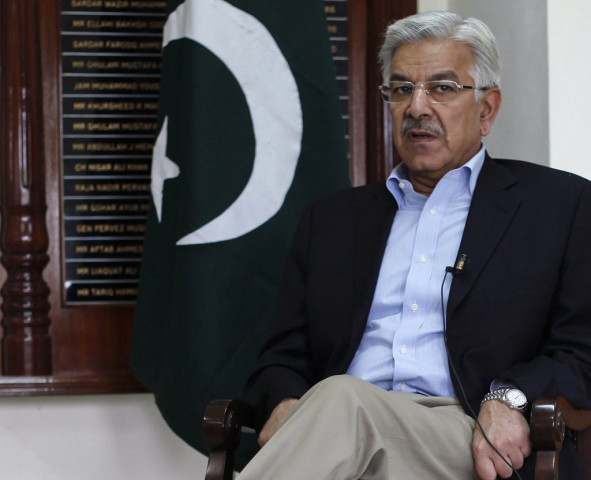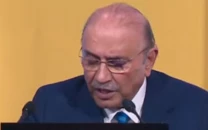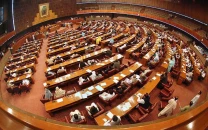Pakistan will not accept external pressure on Indus Waters Treaty: Asif
Defence minister says each and every clause of the IWT should be followed by both the signatories

Defense Minister Khawaja Asif says 6,500 Mega Watt (MW) electricity would be added in the national grid from April to December this year. PHOTO: REUTERS
"Each and every clause of the IWT should be followed by both the signatories in its letter and spirit," he said while speaking to media after addressing a national seminar. The seminar titled "Hydro Politics around Pakistan:Reassessing the Efficacy of IWT," was organised by the Institute of Strategic Studies, Research and Analysis (ISSRA) at the National Defence University (NDU) in Islamabad.
Commenting on India's latest move to build Ratle Dam on River Chenab after Baglihar and Kishanganga project, the defence minister said Pakistan did an extensive exercise in one and half years over the issue. "Pakistan's case is stronger than that of India and we will safeguard our national interests at every cost," he asserted.
Pakistan-India tensions: Trump urged to develop clearer South Asia policy
He underscored the need for conserving water, electricity and gas. In the existing system, he said, Pakistan had sufficient water resources to meet its needs but "we will have to end the culture of wastage." Replying to another question, Khawaja Asif said around 6,500MW electricity would be added in the national grid from April to December this year. The electricity willbe coming from five power generation plants, of which two are coal-fired and three LNG-based.
"This will help eliminate power shortages in peak summer season," he said. Further, he said 3,500 MW more electricity will be added in the system from other resources by the end of the current year. He expressed confidence that the commitment made by Prime Minister Nawaz Sharif with regard to overcoming loadshedding in the given time will also be fulfilled.
Earlier addressing participants of the seminar, Asif said the waters regime as envisaged in the IWT continued to take the brunt of Indian mindset and their inclination to interfere with the waters, exclusively reserved for Pakistan. "The potential to interfere is widened if not actualised, in the backdrop of conflicts between the two countries."
However, he added, the treaty was an instrument with which wars could be avoided, therefore Pakistan's focus remained on implementation of the treaty in letter and spirit. "The question of upper and lower riparian is essentially a misnomer in the IWT context."
"In the first place, Pakistan needs to stick to the treaty, while emphasising on its true implementation. Further, we need to keep in mind that the country's water security dilemma is accentuated in the absence of an effective water storage capacity, water conservation and management strategy," he added.
Army chief rejects India's 'self defeating' surgical strike claims
Asif said the situation could be improved through time efficient management and a strong political will to translate plans into reality. "We should put our house in order and take meaningful steps to enhance our storage capacity." He said both the countries were bound to follow the IWT clauses in letter and spirit and no side could abrogate them unilaterally.



















COMMENTS
Comments are moderated and generally will be posted if they are on-topic and not abusive.
For more information, please see our Comments FAQ